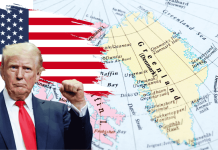Ukraine’s current initiative to lure Russian military pilots with financial incentives and the promise of citizenship in another country to secure their aircraft have garnered international attention.
Ukraine’s current approach is reminiscent of such historical maneuvers, reflecting a time-tested method of warfare. Throughout history, nations at war have often resorted to such clandestine strategies, seeking to undermine their opponents by enticing key personnel to defect or deliver valuable resources.
Nations experiencing heightened military tensions also resort to such tactics. Last year, for example, it was reported that a Taiwanese army pilot was offered $15 million to defect by landing a US-made transport helicopter on a People’s Liberation Army Navy aircraft carrier.
In contrast, a more successful defection happened in 1981 when Taiwanese Air Force officer Maj. Huang Zhicheng defected to China with his American-built F-5F jet fighter.
Huang’s defection was unprecedented in Taiwan’s history and dealt a significant blow to the country’s military, as the F-5 was a crucial part of its air force, which heavily relied on US aircraft.
The Taiwanese Air Force initially attempted to cover up the defection, stating that “the fate of the plane and Maj. Huang is unknown”. However, the Chinese government’s announcement brought the story into the global spotlight.
On August 8, 1981, Huang Zhicheng took off with Lieutenant Hsu Chiu-ling, a student pilot, at around 8 am to conduct an instrument flying check.
Lieutenant Hsu, seated in the back, was instructed by Huang to lower the rear cockpit blinds to focus on the instruments. Huang descended to 400 feet and accelerated to 650 miles per hour toward the Chinese mainland.
When Hsu realized from his instruments that they had crossed into mainland China, Huang reassured him, saying, “I know.” Huang told Hsu not to worry, but the lieutenant insisted on flying back to Taiwan.
Huang decided to return Hsu to Taiwan for two reasons: the lieutenant’s presence could affect the plane’s landing, and Huang felt it was a matter of “human rights”.
Despite being low on fuel, Huang said that he ensured Hsu’s safety by allowing him to parachute from the aircraft near the Taiwanese coast.
Huang then flew back across the Formosa Strait and landed the plane in Fuzhou, at a People’s Liberation Army base in China’s southern coastal province of Fujian, completing his defection.
On Maj. Huang’s orders, Lt. Hsu bailed out and was rescued near one of the small islands off the South China coast held by Taiwan.

Taiwanese Pilot Becomes A Celebrity
China capitalized on Huang’s defection, portraying it as a reflection of the Taiwanese people’s desire for reunification with the mainland despite the Nationalist government’s resistance.
Huang Zhicheng, the Taiwanese Air Force pilot who defected to China, became an instant sensation after flying a US-made jet fighter to the mainland. In recognition of his defection, he was awarded nearly $400,000 and appointed as the deputy commandant of China’s Aviation Academy.
Upon arrival, Huang was feted like a celebrity at a rally attended by over 2,000 people in Fuzhou. Known as Peter Z. Huang in Taiwan, he also had a high-profile meeting with reporters in the Great Hall of the People.
Huang joined the Chinese Air Force and appeared on national television in the green uniform of the People’s Liberation Army. He donned a new Chinese Air Force uniform, which included blue trousers, a green Mao-style jacket, and a Mao cap, although it fit him somewhat loosely.
Huang meticulously planned his defection over three months but, due to a slip of the tongue, nearly jeopardized the operation just two days before the event.

While socializing with fellow pilots, Huang reportedly said, “This is my last drink with you guys,” which prompted his superior officer to investigate the comment. Huang managed to convince his superior that the remark was made under the influence of alcohol and meant nothing.
While the media coverage of the defection was relatively subdued on the international level, Chinese officials used the event internally to bolster the narrative that the then paramount leader of the People’s Republic of China (PRC), Deng Xiaoping’s peaceful reunification efforts were progressing positively, despite the increased tension following the election of President Ronald Reagan in the United States.
Although referred to as “Comrade Huang” in his meetings with the press, Huang stated he had not joined the Communist Party. He claimed that his primary motivation for defecting was to assist China in developing its air force.
- Contact the author at ashishmichel(at)gmail.com
- Follow EurAsian Times on Google News




